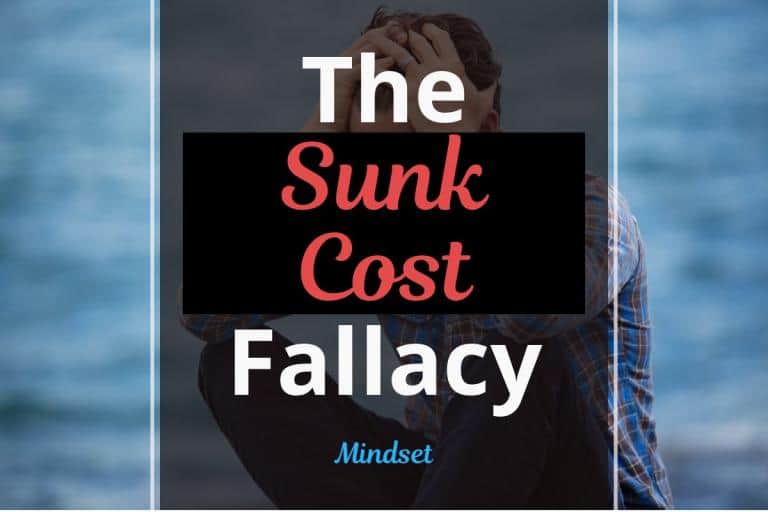
In fact, given the kind of creatures we are-social, deeply reliant on our ability to effectively coordinate-it’s not at all unreasonable to expect creatures like us, via a process of social evolution, to come to internalize a desire to tell exonerating stories about ourselves. It is a desire that proverbially resides close to our proverbial hearts it’s central to who we are. And, I will argue, the desire to maintain plausible deniability about having suffered diachronic misfortune-that is, wanting to be able to spin a plausible autobiographical tale that casts its protagonist in a flattering light-is a nearly universally had and deeply-rooted one.


Honoring sunk costs sometimes allows you to tell a more flattering story to yourself about your diachronic behavior. Very roughly: you suffer diachronic misfortune whenever you perform a sequence of actions that results in an outcome that is worse, by your lights, than some other outcome that could’ve resulted had you performed a different sequence of actions. In the cases in which we feel pulled to carry on with a project because of the costs we’ve sunk into it, the honoring of sunk costs allows us to hide the fact that we’ve suffered what I will call diachronic misfortune. Second, I will suggest that once we come to understand why we feel the pressure to honor sunk costs, it’s no longer clear that doing so is always irrational. First, I am going to provide an account of what it is that makes the difference between those cases in which we feel pressure to honor sunk costs and those cases in which we don’t. In this paper, I am going to do two things. Why? And, in those cases in which we are tempted to honor sunk costs, what’s so irrational about succumbing? In order to make a case, one way or the other, about the rationality of honoring sunk costs, we need to get clearer about why we feel the pressure to do so when we do. Sometimes we feel the “pull” to honor sunk costs, but sometimes we don’t. There is no pressure whatsoever to honor the costs you’ve sunk into the insurance premiums by, for example, burning your house down. Here’s an example: You buy fire insurance for your house and your house doesn’t burn down. But it’s not true that whenever we’ve sunk costs into an endeavor we feel pressure to carry on with it. There are lots of cases in which we feel pressure to honor sunk costs. In each of these situations, it’s hard not to think, for example, “But I’ve already spent money on this,” or “But all that time and work will have been for nothing,” or “If we don’t keep fighting, those who’ve fallen in combat will have died in vain!” There are, of course, many other examples. And here’s another, this time more political, example: We expend considerable resources (as well as sustain significant causalities) fighting a war-which now seems to many to be unwinnable. Here’s another less-mundane example: You’ve devoted many years of your life to a career in Finance-but, after years spent advancing up the corporate ladder, you are no longer sure that this is a job you enjoy doing. Here’s one: You bought a non-refundable, non-transferable opera ticket-but, by the time the night of the show rolls around, you are no longer sure you want to go. Examples range from the mundane to the profound, from the personal to the political. For the sake of picking a more neutral phrase, let’s follow Nozick (1993) by referring to this behavior as honoring sunk costs. Very roughly: you commit the sunk cost fallacy when you let unrecoverable costs influence your current decision-making.Įconomists and Business Majors notwithstanding, most of us commit the sunk cost fallacy. IntroductionĬonventional wisdom, as well-documented in introductory Business and Economics textbooks, holds that it’s irrational to commit the sunk cost fallacy (e.g., Frank & Bernake 2006 Mankiw 2004 McKenzie & Lee 2006). And making yourself easily understood while hiding your flaws will sometimes put pressure on you to honor sunk costs. Acting so as to hide that you’ve suffered diachronic misfortune involves striving to make yourself easily understood to others (as well as your future self) while disguising any shortcomings that might damage your reputation as a desirable teammate.

The reason? Given that we’re social creatures, it’s not at all unreasonable to care about wanting to act in such a way so that a plausible story can be told about you according to which you haven’t suffered, what I will call, diachronic misfortune.

Sometimes it’s perfectly reasonable to wish to carry on with a project because of the resources you’ve already sunk into it. In this paper, I argue that this isn’t, in general, correct. Business and Economics textbooks warn against committing the Sunk Cost Fallacy: you, rationally, shouldn’t let unrecoverable costs influence your current decisions.


 0 kommentar(er)
0 kommentar(er)
